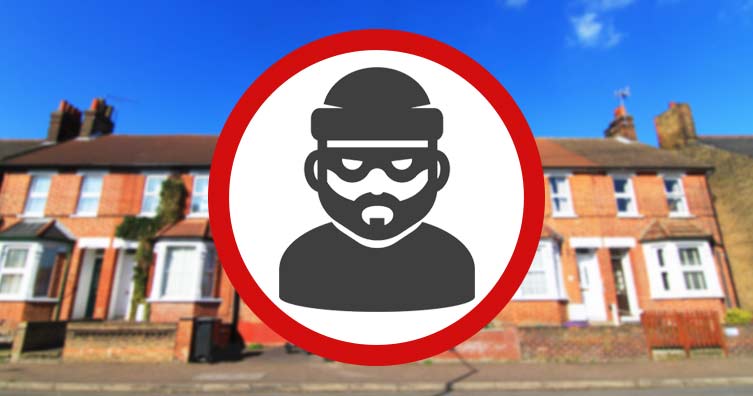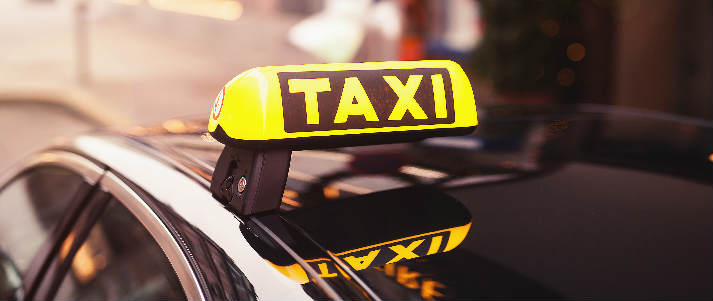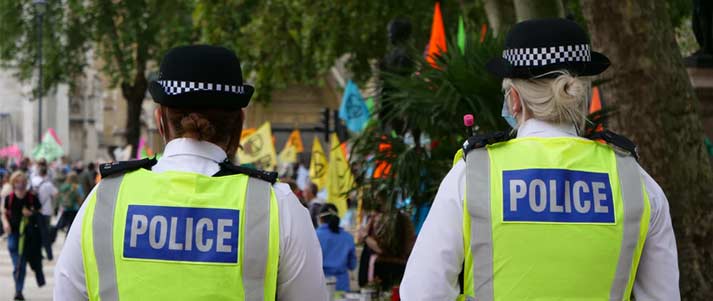8 ways to protect your house from burglars
Worried your student house is a potential target for burglars? Our home security tips will help you keep your house safe from any unwanted intruders...

Credit: Pompaem Gogh (background), Le_Mon (foreground) – Shutterstock
With multiple students all living in the same building, each with their own laptop, phone and other gadgets in most cases, burglars see student accommodation as a quick win with big rewards.
Shockingly, it's said that one in three burglaries happens due to doors and windows being left unlocked. So, start with the basics – don't leave anything unlocked, even if you're in the house. And especially if you haven't got student insurance.
If you want to go a step further and make your home as safe as possible, here are the best ways to protect your home from a break-in. We also cover what to do if you do get burgled.
How to secure your home
Here are some easy home security tips to make your house safe from burglars:
-
Make it look like you're at home when you're not

Credit: HAKINMHAN – Shutterstock
One thing burglars know about students is that they all disappear home for Christmas, Easter and summer.
Unoccupied houses are prime targets for burglars. It gives them an easy way to get in and out without being discovered.
However, there are things you can do to make it look like there are people in the house even when there aren't.
An easy way to burglar-proof your home is to invest in a light timer. You can set it so a living room lamp comes on from around 7pm – 10pm every night. It's much more effective than just leaving a light on for a week. Plus, you won't be wasting too much money on electricity you're not using.
Also, make sure to take all your valuables with you when you go back home. You might not be able to carry your flat-screen TV on the train but take as much as you can.
-
Keep valuables away from windows
While setting your desk up in that bay window overlooking the street might look nice, leaving your laptop on display is a bad idea. If you leave it in plain sight, burglars will look for any opportunity to quickly grab it.
It might seem a bit over the top, but it's actually best to hide your valuables when you go on holiday or on a night out. Find a secure spot in your room, and tuck away your laptop and any expensive jewellery. Just don't forget where you left them!
As tempting as it might be to open all your windows to keep cool in the heat, make sure they're closed if nobody's home. -
Hide laptop and mobile phone packaging
Just bought a new laptop? The worst thing you can do is dump the box outside your house for the rubbish collectors to pick up. You might as well stick up a sign saying 'Expensive new gadgets over here'.
Make sure you break all packaging down, put it in the recycling bin and cover it with some more paper and cardboard.
Also, make sure that your expensive items are hidden in photos if you're advertising your room online before you move out. Again, you don't want to notify any potential thieves about what's up for grabs.
-
Get the taxi to pick you up from down the street

Credit: NothingIsEverything – Shutterstock
In the same vein, it's not a great idea to let the entire world know you're going on a night out with all your housemates.
If you and your housemates pile into a taxi directly outside your house, you're alerting the driver (and anyone watching) to the fact that it's going to be empty for the next few hours.
Get the taxi to pick you up from around the corner or down the road instead. That way, they'll have no way of knowing which house you've just left empty.
-
Register valuables on the UK's National Property Register
It's always best to prepare for the worst. You can do so by registering your valuables. This increases the likelihood of you being reunited with anything that gets stolen.
Head over to Immobilise to add your belongings to the UK's National Property Register. You'll normally have to note down the make, model and serial number of any electronics you have (like laptops and phones) or submit photos of things like jewellery.
This register is used by the police to track down the owners of stolen goods. If they recover your stolen laptop and you've logged it on the register, they'll be able to return it to you.
If the police can't locate the owners of stolen goods they often sell them at police auctions, where you can pick up some bargains.
-
Get contents insurance for expensive electronics
We know it sounds like a drag, especially when you have so many other student bills to pay, but getting contents insurance is an investment that will pay off in the long run.
If you live in halls, you might have contents insurance thrown in with your rent. But usually, this only covers limited items and they have to be in your room when they're stolen (not communal areas).
It's also worth checking whether your parents' contents insurance will cover you at uni.
If you're not covered, don't panic! We know exactly how you can get cheap student contents insurance.
-
Only let people you know into your house

Credit: nednapa – Shutterstock
This one can be difficult, as our British politeness always tells us to hold the door for whoever is coming up behind us.
But, if you live in halls of residence or a block of flats, automatically letting anyone in behind you isn't such a good idea.
People often leave their flat doors unlocked in halls (even though they definitely shouldn't), thinking the main door will keep out any intruders. If you start letting in random people, you could be giving them access to flats and communal areas where they can get their hands on valuable items.
As difficult as it is, sometimes it's best to explain that you can't let someone in for security reasons and ask them to buzz whoever they're visiting instead.
-
Keep your bike safe with a sturdy bike lock
Having a bike at uni is a great way to save money on public transport (and save the environment too). But sadly, they are prime targets for thieves.
Thousands of bikes are stolen in the UK every year, so this is something you don't really want to scrimp on.
For the best protection, get one of these locks. Simple chains and padlocks can often be easily cut with a pair of cable cutters.
When leaving your bike, lock it up inside where possible (in a garage or shed, for instance). Also, make sure to chain it to an immovable object.
What to do after a burglary at your house?
Even if you take all the relevant precautions, burglaries can still happen. It can be a pretty traumatic experience to go through. But here's what to do if someone breaks into your house:
-
Call the police immediately on 101

You should only use 999 in an emergency, like if the intruder is still in the property. If you live in halls of residence, it might be best to call university security first. They might call the police on your behalf.
Don't wait around to do this! Do it as soon as you realise the burglary has taken place.
-
Get a Crime Reference Number
After you give your statement to the police, you'll get a Crime Reference Number. Make sure you keep it safe as you'll need this to submit your insurance claim.
-
Don't touch anything
While you probably want to check your room and see if anything has been stolen or damaged, you shouldn't touch anything until after the police have been.
The area is now a crime scene. There will likely be forensic and other evidence that could help police solve the crime, so you don't want to tamper with it.
-
Contact your landlord
You should notify them of what has happened but also get them to make the property secure again.
For example, if a window has been broken, they'll need to send someone to fix it as soon as possible. Your landlord should have an out-of-hours emergency number for this. If you can't get in touch with them, the police should be able to help instead.
-
Contact the bank

Credit: Chermen Otaraev – Shutterstock
If your bank cards have been stolen (or a device such as a laptop or phone, which stores personal financial information), you should contact the bank as soon as possible.
The bank will block your cards to stop someone from using them. They can also add extra security precautions to your account.
-
Make a list of everything that has been damaged or stolen
Your insurance company will need a list of items that have been stolen or damaged when you make your claim. It can be helpful to take photos too.
When making your list, be as specific as possible. For example, if your laptop has been stolen, you can list the model and serial number if you have it.
-
Complete your insurance claim
You should do this as soon as possible. Start by making a list of stolen items. It's also helpful if you can track down any receipts or invoices that prove how much the items cost.
-
Contact Victim Support
Being the victim of a burglary can be quite a traumatising incident. The police might direct you towards Victim Support, a charity that helps people deal with the impact of crime.
Also, check out our guide to looking after your mental health at university for more advice and support services.
Security is just one challenge you'll face in student accommodation. Here are the worst student housing problems.








